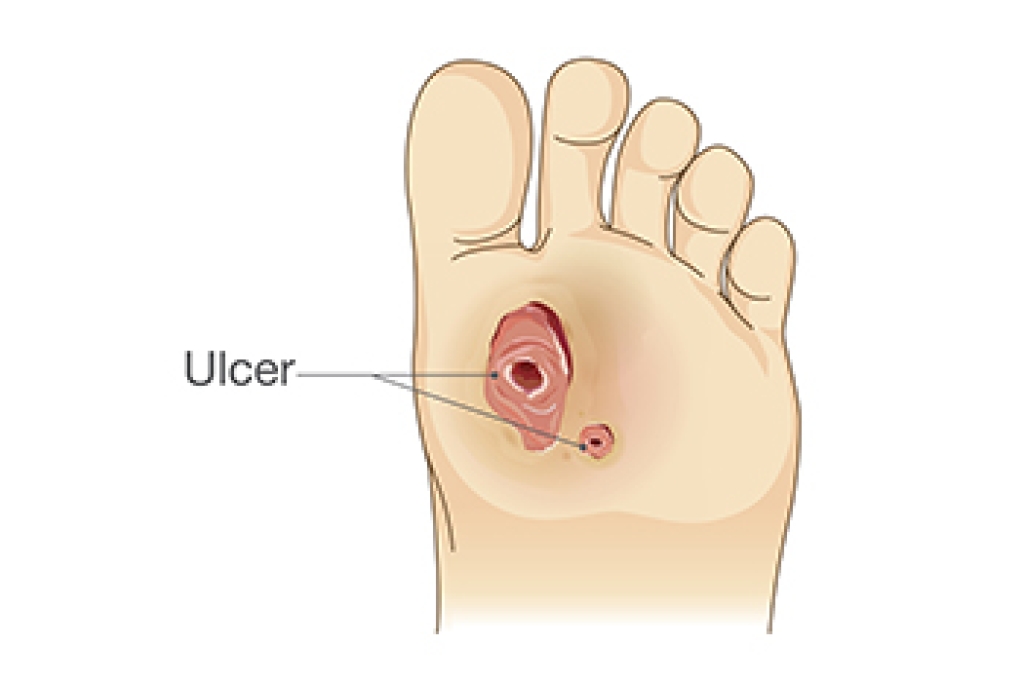
Diabetic foot wounds progress through three key phases, the inflammatory, proliferative, and maturation stages. The inflammatory phase is when the body initiates its immune response, removing debris and bacteria. In people with diabetes, this phase can be extended because of poor circulation and weakened immunity, which delay healing. The proliferative phase focuses on tissue repair, as new blood vessels form and collagen builds up to close the wound. Diabetic wounds may experience slow progress during this phase, which increases the risk of infection. The maturation phase involves the remodeling of tissue, which can sometimes extend beyond a year. A podiatrist plays a critical role in managing diabetic foot wounds by conducting regular exams and recommending advanced wound care treatment when necessary. If you have diabetic foot wounds, it is suggested that you are under the care of a podiatrist who can effectively treat this serious condition.
Wound care is an important part in dealing with diabetes. If you have diabetes and a foot wound or would like more information about wound care for diabetics, consult with David Williams, DPM from El Paso Feet. Our doctor will assess your condition and provide you with quality foot and ankle treatment.
What Is Wound Care?
Wound care is the practice of taking proper care of a wound. This can range from the smallest to the largest of wounds. While everyone can benefit from proper wound care, it is much more important for diabetics. Diabetics often suffer from poor blood circulation which causes wounds to heal much slower than they would in a non-diabetic.
What Is the Importance of Wound Care?
While it may not seem apparent with small ulcers on the foot, for diabetics, any size ulcer can become infected. Diabetics often also suffer from neuropathy, or nerve loss. This means they might not even feel when they have an ulcer on their foot. If the wound becomes severely infected, amputation may be necessary. Therefore, it is of the upmost importance to properly care for any and all foot wounds.
How to Care for Wounds
The best way to care for foot wounds is to prevent them. For diabetics, this means daily inspections of the feet for any signs of abnormalities or ulcers. It is also recommended to see a podiatrist several times a year for a foot inspection. If you do have an ulcer, run the wound under water to clear dirt from the wound; then apply antibiotic ointment to the wound and cover with a bandage. Bandages should be changed daily and keeping pressure off the wound is smart. It is advised to see a podiatrist, who can keep an eye on it.
If you have any questions please contact our office located in El Paso, TX . We offer the newest diagnostic and treatment technologies for all your foot and ankle needs.
